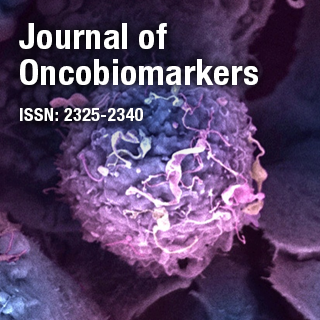Editorial Board
Editor-in-Chief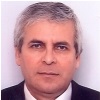
is the President of the WAMS, the World Academy of Medical Sciences, Enschede, Netherlands. He is an eminent research scientist in Molecular Oncology. His main research interests include Cancer Stem Cells, Tumor Cell Biology, Oncogenesis, Molecular Oncopathology, Cell Signaling, Signal Transduction and Extracellular Matrix.

is the Director of Oncology Research at Children’s Hospital of Pittsburgh, Professor of Molecular Genetics and Biochemistry, University of Pittsburgh School of Medicine and The Paul C. Gaffney Professor of Oncology Research, CHP of UPMC. His current research focuses upon the function and pharmacologic regulation of the c-Myc oncoprotein.

is a Professor of Oncology, Pathology and Radiation Oncology at the Barbara Ann Karmanos Cancer Institute Wayne State University, School of Medicine. He was the first to identify and clone tumor galectins and established their functional role in cancer biology and metastasis and designed a drug that is being tested in the clinic to inhibit galectin-3 function.

is a Professor of Surgery at Harvard Medical School. He is currently senior surgeon and residency director for the Harvard Program in Urology Long wood Medical Area at Brigham and Women’s Hospital and has served as the president of the New England Section of the American Urological Association which is composed of the over 500 board certified urologists who practice in New England.
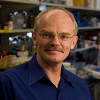
is a Professor of Oncology and Pharmacology at Georgetown University Medical School. His areas of expertise include control of angiogenesis in tumor growth and identification of organ homing genes of cancer metastases. His laboratory is heavily focused on cellular, molecular and biochemical signal transduction mechanisms in vitro as well as in transgenic animals.

is a Professor of Radiation Oncology at the University of Massachusetts. His main interests are Pulmonary and CNS Neoplasms, and he is currently investigating local recurrence following surgery and stereotactic body radiation therapy for early-stage non-small cell lung cancer.

is an Associate Professor in Wake Forest University School of Medicine. His research interest is cancer biology, with focuses on functional studies of new oncogenes, tumor suppressors and small noncoding RNA studies. He invented the DNA vector-based RNAi vector (shRNA), the first generation of pSilencer of Ambion, Inc.
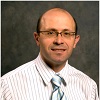
is an Associate Professor, Clinician Scientist & Director of the Division of Radiation Oncology at McGill University. He is leading an active translational research program to develop new protocol to treat cancer with combined modality “radiation and targeted agents”.

is an Associate Professor at University of Hawaii Cancer Center. He graduated from Nanjing Medical College & Peking Union Medical College. He received numerous awards including New Investigator Award, American Liver Foundation Scholar Award & Salomon Research Award. His research is to understanding the mechanisms of inflammation and cancer as well as elucidating their relationship.
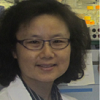
is an Associate Professor of Cancer Biology at University of Hawaii Cancer Center. She is studying on p53 and Fanconi Anemia-BRCA signaling pathways and their implications in tumor suppression and cancer treatment. Her team explores the cellular and molecular mechanisms by which human tumor and drug resistance are developed, using mammalian cell lines, animal models and human tissues.

is an Associate Professor at the the University of Hawaii Cancer center. She studies mechanisms of skin tumorigenesis leading to squamous cell carcinoma, a highly prevalent cutaneous malignancy. Her laboratory is presently engaged in the investigation of the RasGRP1 epidermal pathway that could validate its exploitation for chemopreventive and therapeutic intervention in skin cancer.

is an Associate Professor of Biochemistry & Molecular Biology and a member of the Sylvester Comprehensive Cancer Center at University of Miami Miller School of Medicine. His laboratory focuses on understanding molecular mechanisms of DNA replication-coupled repair, including mismatch repair, interstrand crosslink repair, and translesion synthesis.

is an Associate Professor in the Department of Oncology & Karmanos Cancer Institute at Wayne State University School of Medicine. He received his PhD degree from MD Anderson Cancer Center at the University of Texas & conducted postdoctoral training at Caltech. His research interest is the molecular mechanisms of ubiquitin-proteasome system & implications of protein degradation in cancer.

is an Associate Professor in University of Technology Sydney. He is holding a PhD in Electrical Engineering (AI); He is working in cross-disciplinary applied research area and established my track record. His research area covers the fields of Computational Intelligence, Bio-Mechatronics Systems, Health Technology, and Artificial Intelligence Systems. He has built many human detection systems.
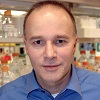
is an Associate Professor at the Mayo Clinic. Work in his laboratory focuses on reactive oxygen species – and small GTPase-controlled signaling cascades that regulate cell survival, cell polarity and actin-driven cell migration & invasion. Specific interests are to understand the roles of Protein Kinase C and D families of serine/threonine kinases in these signaling pathways in pancreatic & breast cancer.
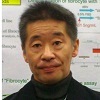
is an Associate Professor and Vice-president of Gastroenterological Surgery, Kanazawa University Hospital, Japan. He has specialized in gastric cancer treatment. His research interest is to develop the treatment for paritoneal metastasis in gastric cancer and to elucidate the mechanism of cancer associated fibrosis due to EMT.

is an Associate Professor of Otolaryngology, Dermatology & Pathology at the University of Colorado School of Medicine. His lab is interested in studying the molecular mechanism of squamous cell carcinomas, esophagus, lung and skin. The ultimate goal is to develop novel therapeutic approaches and biomarkers to improve the treatment for this group of cancers.

is an Associate Professor in the Department of Oncology, University of Wisconsin. The major focus of Xu’s research is on breast cancer epigenetics. She had also made contribution to the identification of novel targets such as ER? and ER?/ER? heterodimers in different subtypes of breast cancer and translating the bench discovery to clinical trial.

is a Simian Cytomegalovirus Expert for the FDA, a committee member on the independent Research Evaluation & Decision Panel (REDP) for the AIDS Cancer & Specimen Resource of the NCI-AIDS Malignancy Program, and a brain-on-chip investigator with Vanderbilt University Medical Center. He is currently the Principal Investigator for Project SAVED, a CDC funded HIV capacity building assistance initiative.

is an Assistant Professor of Biochemistry & Molecular Biology, and a Scientific Member at Karmanos Cancer Institute and Cardiovascular Research Institute at Wayne State University School of Medicine. His research interest lies in the inflammation and cancer biology, with focus on defining the molecular mechanisms of chemokines and their receptors in cancer progression, tumor angiogenesis, inflammation, etc.

is an Assistant Professor in the Department of Cancer Biology at the Wake Forest School of Medicine. His area of expertise is in development of targeted agents for the diagnostic imaging & therapy of cancer. Specifically, his research focuses on developing agents that will enable imaging of tumor microenvironment using positron emission tomography & magnetic resonance imaging.

is an Assistant Professor at H. Lee Moffitt Cancer Center & Research Institute and University of South Florida. His current research focuses on understanding the mechanisms of action of various epigenetic modifications including histone modifications and DNA methylation in regulating chromatin structure, cellular processes and human diseases.
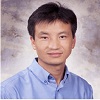
is an Assistant Professor in the Department of Cell Biology, University of Miami, USA. He is interested in the interaction between EBV/HHV4 and the host innate immune system. EBV latent infection is associated with a large spectrum of lymphomas & carcinomas. Interferon Regulatory Factors, a small family of transcription factors are important for many aspects of immune regulation & oncogenesis.

is an Assistant Professor of Cancer Biology at the Mayo Clinic. Dr. Li is interested in the research of cancer genomics with focus on tissue-specific gene regulations in different cancers using high-throughput sequencing and bioinformatics approaches.

is an Assistant Professor at the Cincinnati Children’s Hospital Medical Center. His research interest is at the area of hematology and immunology, focusing on hematopoietic stem cell and T lymphocyte development and functions. Specifically, his area of expertise is in investigating physiological roles of Rho family small GTPases and mTOR pathway in hematopoietic stem cells and T cells.

is a Medical Oncologist and Clinical Assistant Professor of Medicine at the University of Iowa Carver College of Medicine. His research interests are in the field of breast cancer, in particular in high risk patients and development of new therapies.

is an Associate Professor at the Institute for Academic Medicine, Department of Pathology & Genomic Medicine, Houston Methodist Hospital. She is currently researching novel genetic and epigenetic biomarkers for the diagnosis, prognosis, and treatment of cancer patients.

is an Assistant Professor of Medicine and Cancer Biology at Vanderbilt University School of Medicine. His research focuses on role of interactions of intrarenal hormones and cox-2 pathway in kidney physiology and pathophysiology, the role of reparative macrophages/dendritic cells in recovery from acute kidney injury, the role of prostanoids in development of hypertension and diabetic nephropathy.

is an Associate Professor of Cancer Biology at University of Hawaii Cancer Center. His laboratory focuses on elucidating mechanisms by which sphingolipid pathway, especially sphingosine kinase 1 (SphK1) mediates carcinogenesis and identifying novel and safe targets for chemoprevention against colon, breast and head & neck cancers.

is a Research Assistant Professor in the Department of Medicine, Division of Genetic Medicine, at Vanderbilt University. His research interests lie in cell and cancer biology with a focus in cell-cell adhesion and migration. Using zebrafish and tissue culture models, he is currently studying the role of PCP proteins in cell migration and invasion.

is a Research Assistant Professor in the Department of Molecular and Cellular Pharmacology at University of Miami. Her Research interest is early detection of cancer using metabolomics approaches. Currently, she is involved in a translational research related to skin cancer biomarkers detection. In addition, she is using computational approaches study and de-orphanize olfactory receptors.

is a Senior Epidemiologist & Research Scientist. She is Executive Director of the Westmead Research Centre for Evaluation of Surgical Outcomes in the Division of Surgery, The University of Sydney at Westmead Hospital. Her research interests are cardiovascular disease, diabetes & cancer with a focus on epidemiological, clinical & pathophysiological aspects of venous thromboembolism & cancer.

is a Staff Scientist in Cell & Cancer Biology Branch at the NCI, NIH. She received her Ph.D. and training in the Department of Immunology, Kimmel Cancer Center, Thomas Jefferson University. She is interested in cell death and the fine balance of apoptosis, necrosis and autophagy that regulates the fate of a cell. Her current work is focused on connecting cell death pathways to tumorigenesis.

is working as a Research Fellow in the Urologic Oncology Branch (UOB) of the National Cancer Institute in Bethesda, MD. Her research interest is cancer biology, with focus on molecular mechanisms of oncogenesis. Dr. Cecchi received the ASCO Bradley Stuart Beller Merit Award for her research on antagonist development of heparin binding growth factors with widespread involvement in cancer.

is a Staff Scientist of Pediatric Oncology Branch, National Cancer Institute. His research interest is in the field of cancer biology, particularly to understand the molecular mechanism in neuroblastoma tumorigenesis and progression. He mainly focused on the genetic and epigenetic alterations in NB to identify tumor suppressor and oncogenes involved in cancer progression.

is an Assistant Professor at the Department of Pathology, School of Medicine, University of Colorado Anschutz Medical Campus. Dr. Liu is primarily interested in the erbB receptor tyrosine kinases (RTKs)-initiated cell signaling in cancer development and miRNA-mediated epigenetic regulation of drug resistance and tumor metastasis.
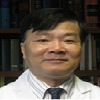
is an Assistant Professor of Physiology at University of Mississippi Medical, USA. His research areas of interest include: obesity-induced angiogenesis and increased cancer risk; exercise protects against adipose tissue accumulation and cancer progression; mechanisms of alcohol in tumor angiogenesis and cancer progression – role of oxidative stress; and interplay between VEGF.

is a group leader at the North West Cancer Research Institute, Bangor University and the Welsh Cancer Genetics Biomedical Research Unit. His research interests are associated with identifying germline and meiosis-specific genes that become actively expressed during oncogenesis and the functional contribution they might make to the oncogenic process.

is a Biomedical Scientist in Queen Elizabeth Hospital Hong Kong. His main research interests have been focusing on cancer studies utilizing high-throughput technologies to discover biomarkers for cancer diagnosis, treatment prediction and prognostication. Dr Cho has published over 200 peer-reviewed papers.


